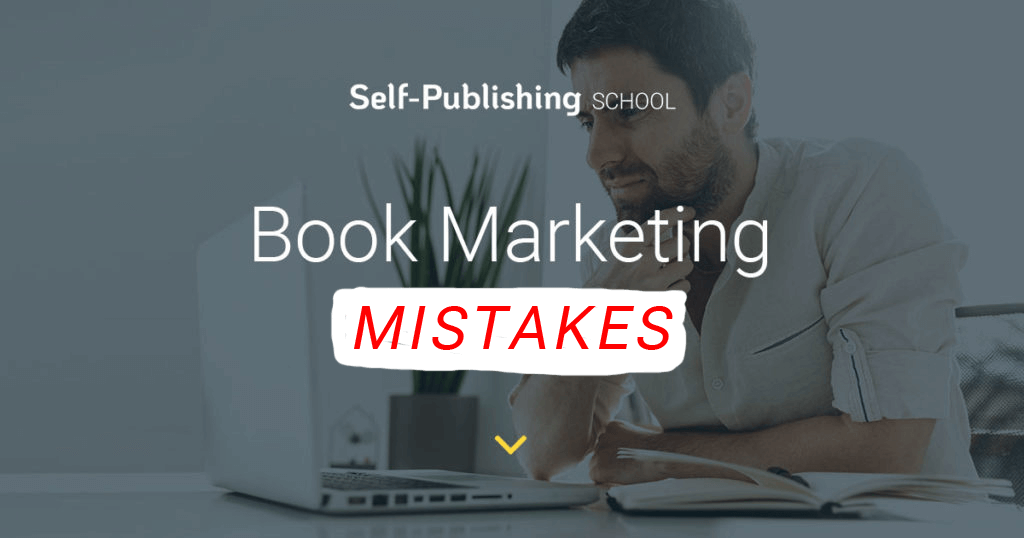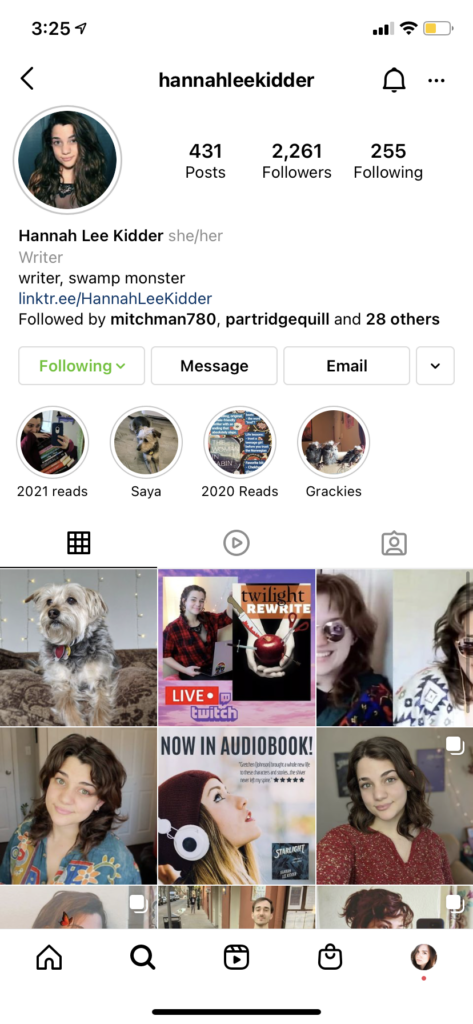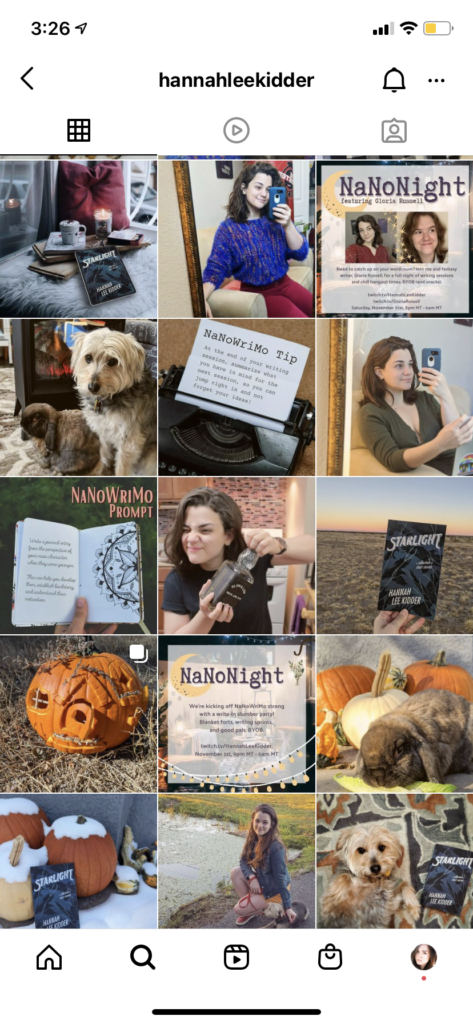I don’t think there’s anything scarier for an author than marketing the books they write. In a constantly-evolving industry with different niches, inconsistent rules, and never-still goalposts, selling a book is hard.
So hard that most authors push the marketing part of their author platform away, avoid it, and save it for the last minute. That’s your first mistake! And there are…a lot more mistakes, honestly. But we’re here to help! Let’s look at some of the biggest mistakes authors make with marketing their books so you know a few things to avoid.
Don’t let this discourage you, because mistakes are the best way to learn! Hopefully this list gives you a headstart, but don’t be afraid to make your own.
Also keep in mind that in general, these are things you’d want to avoid, but there’s no right or wrong way to sell a book or build an author platform. Every author, genre, niche, and brand are a little bit different.
“Try again. Fail again. Fail better.” — Samuel Beckett

Book Marketing Mistakes On Social Media
Social media is a cornerstone element to any strong author platform. Here are six ways authors might go wrong while marketing their books on social media.
1. Not posting
Social media can be intimidating. Especially if you’re learning a totally new format or platform to reach your audience, the features, updates, and trends are hard to track and even harder to master.
But don’t let that stop you!
One of the biggest mistakes you can make with your social accounts is not posting at all. If you don’t post, you won’t learn. If you don’t experiment, you won’t be able to tell what resonates with your audience. And if you let that algorithm slack–it might not take you back.
2. Posting too much
But Hannah, you just said—
I know, I know.
But posting too much low-quality content can be more damaging than posting less. Don’t spam your readers, no matter the format.
Too much, even of a good thing, can chase anyone away.
Keep an eye on your follower fluctuation throughout the week so you can know if your posts are attracting new audience members or chasing away the ones you already had. Adjust your content and posting schedule accordingly.
3. Using your voice to gripe and complain
It’s great to be honest on your platforms. Sometimes it’s even nice to show the grim, gritty side of your industry or share a sad personal anecdote–but if your feed becomes a constant barrage of negativity, complaining, and whining? You’re going to lose your audience’s interest quick.
Even in content creation, I personally try to keep an overall positive vibe. I have video series like Quest for the Worst, where I review the worst films I can find, and I try to keep the tone humorous instead of complain-y. In my Twilight Rewrite video series, I try to point out what Stephenie Meyer did well, and I talk a lot about my favorite characters.
Both of those series could easily become nothing but me complaining, so I’m careful to keep it lighthearted!
4. Exclusively promoting your books
No one wants to follow an account that’s 100% advertisements. Some best practices suggest only making 1 of every 3 posts promotion. Others say only 1 of every 5.
There’s also the 5-3-2 rule of posting, where, within 10 posts:
- 5 posts are valuable or educational in some way
- 3 posts are about your business
- 2 posts are personal to build your brand.
Another method to keep it from over-promoting on social media is to lean more into process updates instead of straight promo.
For example, if you’re posting about your writing journey, specific things you’ve overcome with your manuscript, and other relatable things, it won’t feel so much like you’re reminding people you have a book coming up, so they’ll keep getting reminded of it without feeling like they’re being asked to buy something.
We talk a lot about this in our Social Media for Authors self-guided course—check it out if you want a deep-dive on using your social platforms effectively for selling books (without actually being salesy).
5. Not personalizing your posts
If you follow authors on Instagram, I’m sure you’ve seen a few of those accounts that post their books, fan art, character portraits, buy links, promo codes, affiliate content, etc., etc., etc., and there isn’t a trace of personality to them. Those types of online presences are difficult to connect with.
While boundaries are incredibly important when you have a public personal brand, keeping things too formal and business-oriented can turn readers off.
So try to strike a balance between maintaining your privacy while also sharing certain aspects of your life to give your brand personality. A great example is posting about your pets! Pets are humanizing, cute, and relatable, but they also aren’t revealing any real personal information about you.
Below are a couple of screenshots of my most recent Instagram feed so you can see what this looks like all put together. You can see I have pictures of my pets, book promotions, writing tips, current events, and more.


There are so many different strategies you can utilize for different goals and audiences, so try ‘em out!
If you’re looking for a way to learn how to market your books on social media, Social Media For Authors is a new course developed by the Content Marketing Manager here at Self-Publishing School.
Book Marketing Mistakes in Newsletters
Another chunky bit of an author platform is the author newsletter. And like social media, there are an infinite number of ways you can utilize it. Let’s look at a few missteps you might run into.
1. Exclusively promoting your books
Just like with social media, if you are only ever promoting yourself, there’s little reason for people to keep reading. You can use the 5-3-2 rule for newsletters, but instead of considering posts, consider it as emails or sections in your newsletters.
You can also make a promotion more palatable by making it an update, like sharing an anecdote about a recent struggle or win with that project, then include a pre-order link.
Or you might do something like include a picture of your workspace and say something like “This is where I’ve been working on [project title]. What does your writing space look like?”
2. Not monetizing
This is less related to marketing a specific book and more about utilizing your author platform for multiple income streams, but don’t underestimate the power of your newsletter for making money. Don’t miss the opportunity to toss in some affiliate links or sell a promo to another creator.
This is another great opportunity that too many authors miss out on. A newsletter share is when two writers or creators share each other’s books or content in their own newsletters.
This way you cross-share each other’s audiences at no cost to either of you.
4. Not taking proper precautions to avoid spam boxes
Inboxes want to toss most newsletters into spam folders. There are a few ways to avoid the spam filter, like addressing the emails with the reader’s first name, using honest subject lines and avoiding sales cliches like the word “free” and all caps words, and encouraging your users to add your email to their address books.
See what you can do to make sure the most readers are actually seeing your newsletters.
5. Writing weak subject lines
It doesn’t matter how good your newsletters are if they never get opened. Try writing interesting, concise, and accurate subject lines to up your click rate.
6. No personalization
You’ll see this as a mistake in almost every aspect of your book marketing. If your promotions aren’t injected with personality, they’re just ads. And everyone hates ads.
7. Not tracking success
Most email services give you access to analytical data to see your open rates, click rates, and click maps to see how many people are clicking on which links.
Every time you send a newsletter, check out your numbers compared to your past email performance, as well as the industry standard. If certain Calls To Action aren’t getting any turnover, try to figure out why. Keeping tabs on your data will help you curate stronger future content.
And of course, the biggest mistake is to not try. There’s a learning curve for everything, so just do your best, monitor the results, and adjust accordingly.
Book Launch Marketing Mistakes
And here are five mistakes authors might make when launching a book.
1. Not having a plan
Book launches are hectic and can be overwhelming, especially without a plan. Before your book is up for presale, you should have a promotion plan! This can be as detailed as you’d like. Some authors plan and schedule their social media posts, events, and giveaways months in advance. The more pre-work you can do will free up more time to deal with unforeseen problems and keep thing on track.
2. Being shy
No one is excited to talk about how great their book is. Marketing is awkward! There are a few ways to soften it though, like using quotes from your book reviews instead of your own words to hype it up. It gets easier with practice, I promise.
3. Not hyping your book the whole time
If you wait until your book is already published to start promoting it, it will be much harder to gain traction and build hype.
Stir up excitement while you’re writing, during the publishing process, and during the presale period. Speaking of:
4. Skipping the presale period
The length of your presale period depends on your goals, genre, and platform, but it’s typical for authors to host a three- to six-month presale period for readers to pre-order their book. Having a successful presale period means that stores and algorithms will favor your book, which can lead to more sales in the future.
5. Not doing events and guest spots
Even if you don’t do in-person spots, attending and hosting events is a great way to boost sales. For example, I compared sales numbers from posting pre-recorded videos asking people to buy my books versus live streams I’ve done asking people to buy my books, and the numbers were RIDICULOUSLY different.
There’s something exciting and interactive about buying a book live and having the author react to your purchase.
Different types of events you might plan for your book launch:
- Being a guest on podcasts or YouTube channels.
- Live streams. For example, when Starlight released, I had a Twitch stream where I and a couple friends read spooky stories around a fire. Every time I’ve dropped an audiobook, I hosted a trivia night about the book and gave free audiobooks as prizes.
- Book signings
- Library visits
- School visits (for children’s books)
Marketing a book is probably the hardest part of being an author, but you can do it!
The best way to learn is to make mistakes and take notes, so don’t let this list be discouraging. Give it your best go, and adjust your strategy as you see what works and what doesn’t.
If you want to avoid the mistakes altogether and have our team help you with done-for-you marketing services, please book a call. Our publishing strategists can help you develop a marketing plan customized to your needs.
The biggest mistake you can make is not trying at all.
